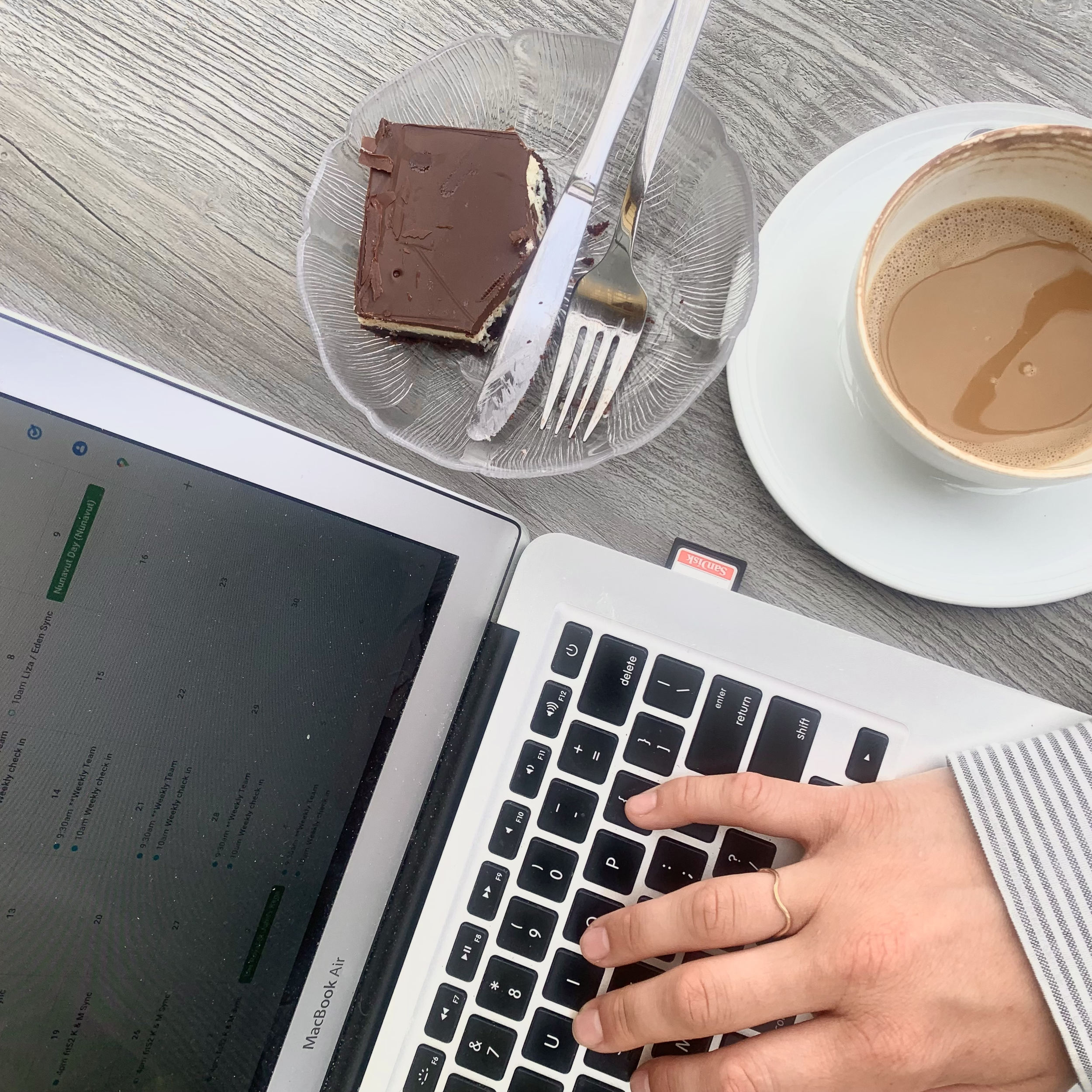What I learnt as a Digital Nomad and why I’m ready to be a Digital Homebody
While on my Communications Co-Op application journey, I knew I wanted a job that allowed me to work remotely. This goal was initially fueled by a desire to travel and see family easily. However, my plans changed after landing my ideal Co-Op job as a Digital Marketing Associate at Caravan Digital Studios for the next eight months. I even interviewed while on vacation to Tofino with my partner, which left us both excited at the possibility of returning to live in Tofino. Once offered the remote-work position, I was able to move with my partner to the island for the summer and become a Co-Op Digital Nomad.
After securing housing in Tofino through a second part-time job (cleared with my supervisor, of course), I began to plan for potential obstacles. I thought I might need to get my own wifi router for our trailer and go to a cafe once in a while for a break from working at home, but, naively, I couldn’t see many other issues going forward.
The first issue I ran into was the predicted awful wifi at our trailer park, which caused me to constantly drop out of video conference calls and break up in regular phone calls. Unfortunately, I could not combat this by getting my own wifi router because we were seasonal, temporary workers living in staff accommodation. I felt embarrassed and unprofessional for my technical issues, but my supervisor and co-workers were incredibly understanding and supportive of my situation. As a workaround, I would get to a cafe for every video conference, which proved to be another challenge.
This second issue was finding the perfect cafe, as some cafes’ Wi-Fi didn’t appear to be that much better than what I had at home. However, through my various cafe trips, I finally found “the one” for me (after about a month of living there), which allowed for steady video calls and helped me get out of the house into a workspace where I felt more productive.
One thing to keep in mind with this solution is the uncontrollable factors of noise level, busyness, and coffee costs. Some days, typically closer to the weekends, the cafes would be packed with tourists, which increased my background noise and made it harder to find seating. Additionally, I spent around $20-$30 weekly on coffee from 1-3 cafe visits.
The last thing I have to note about this digital nomad experience is that it would not have been possible without picking up a second job to find housing. This may be specific to just living in a tourist town, but it is vital to recognize the reality of my situation. Having a second part-time job reduced my free time to have only one full day off and three evenings after 5 pm. I cannot recommend this because it limited my ability to participate in activities like camping or surfing to the small window of free time I had.
I have felt so lucky to live as a digital nomad, and it would not have been possible without Caravan, but now I am looking forward to spending some time back in the city working as a digital homebody.


